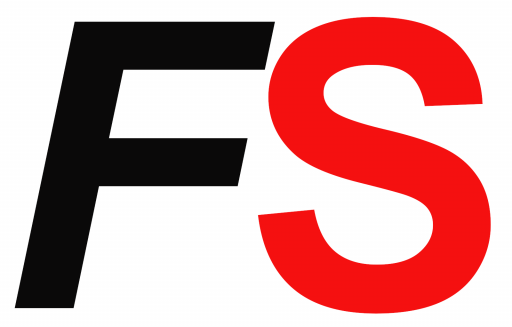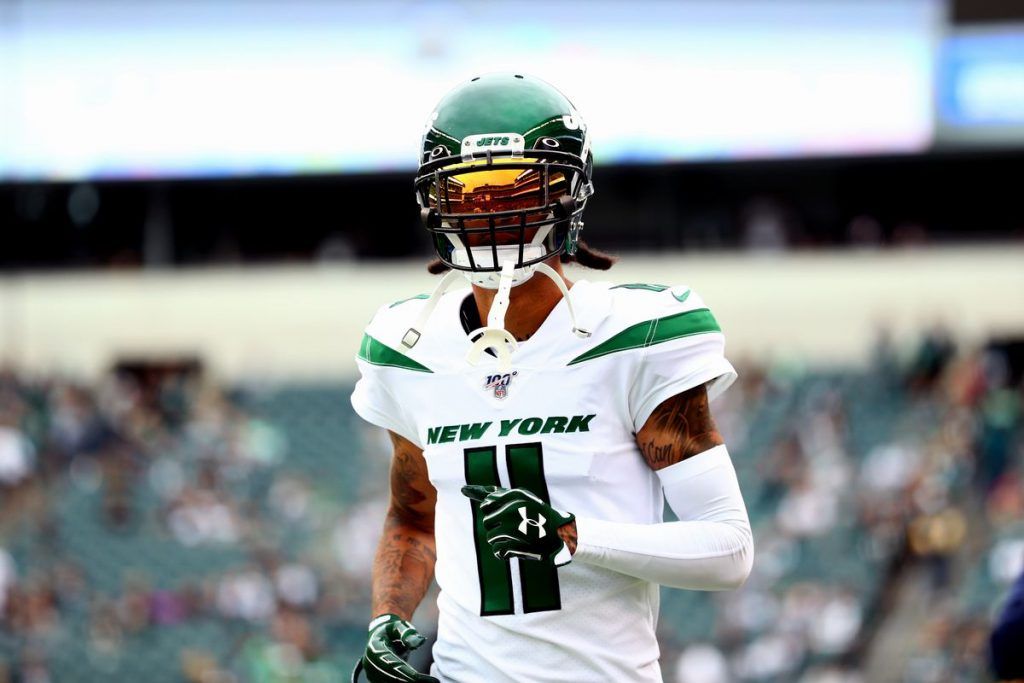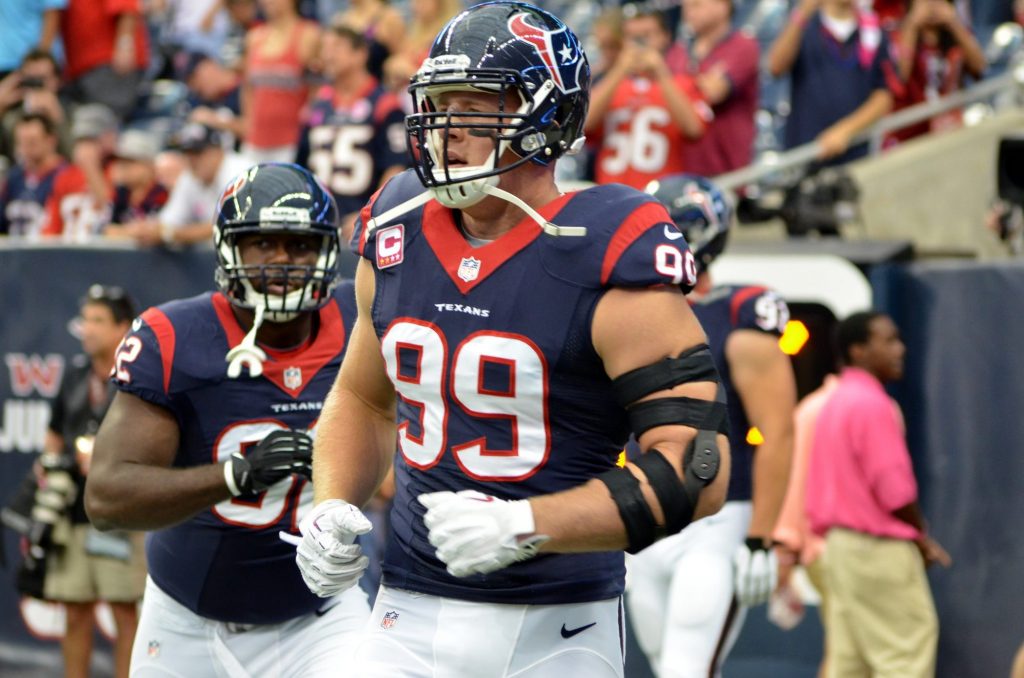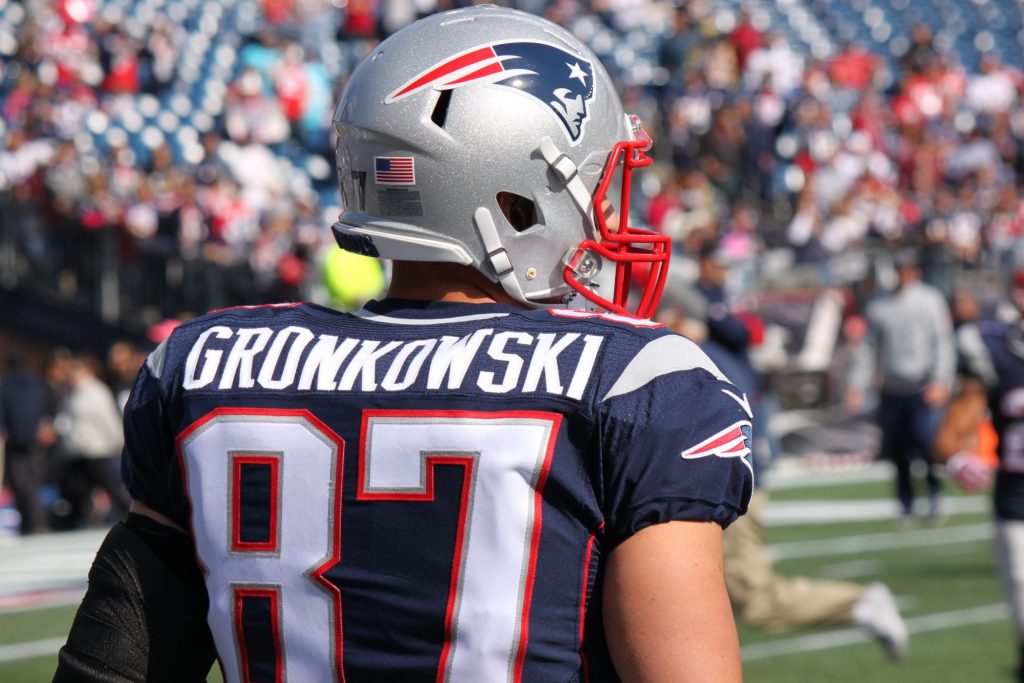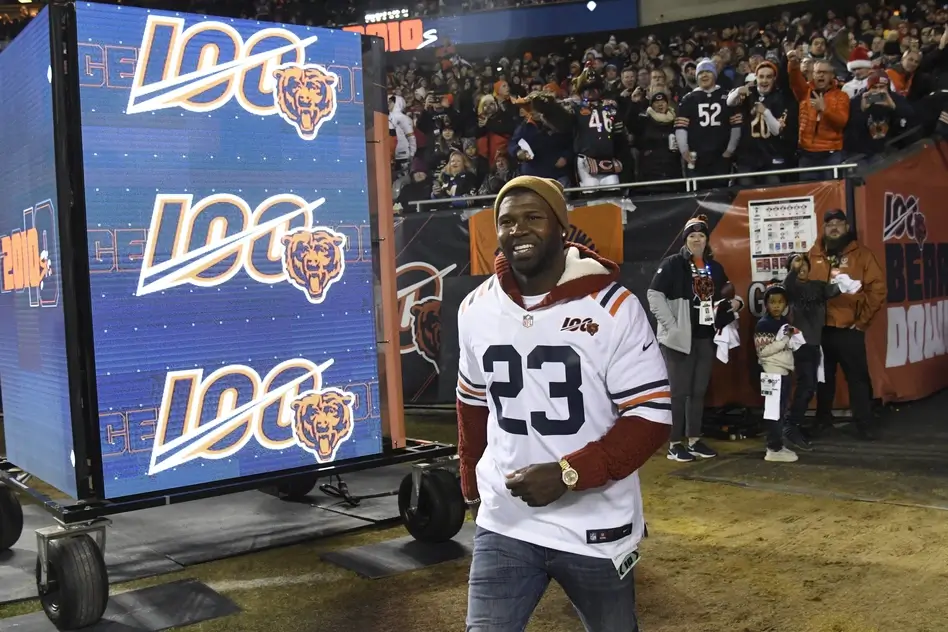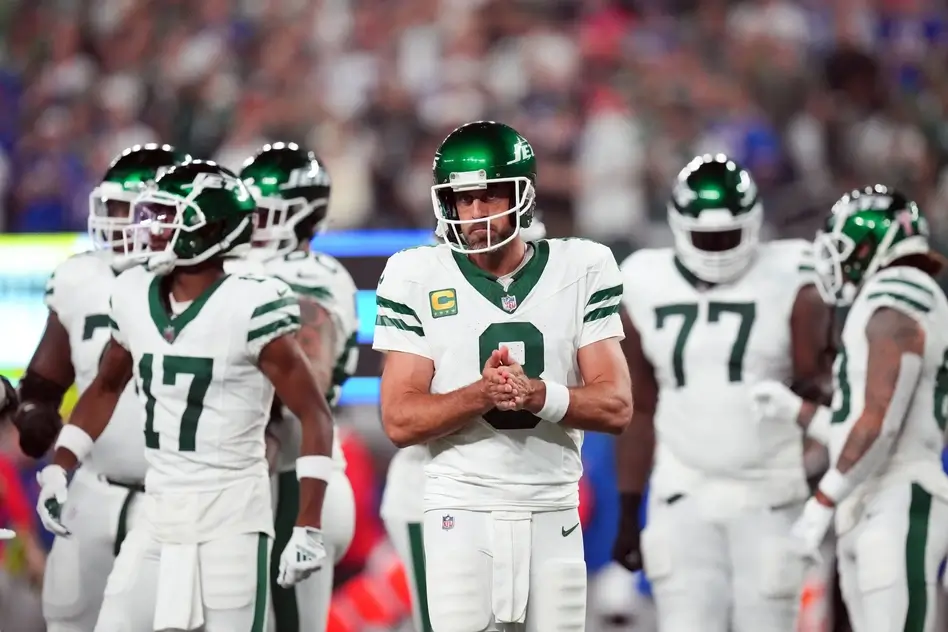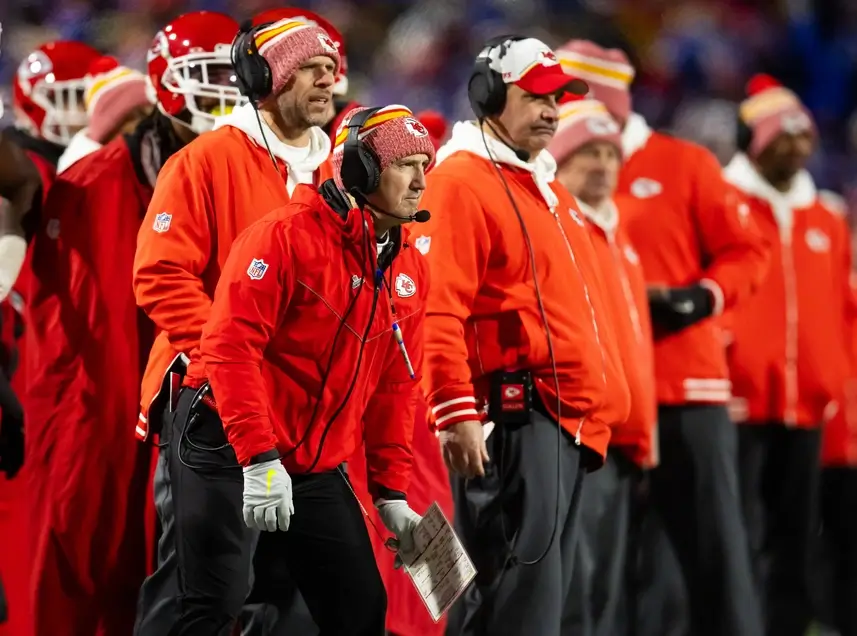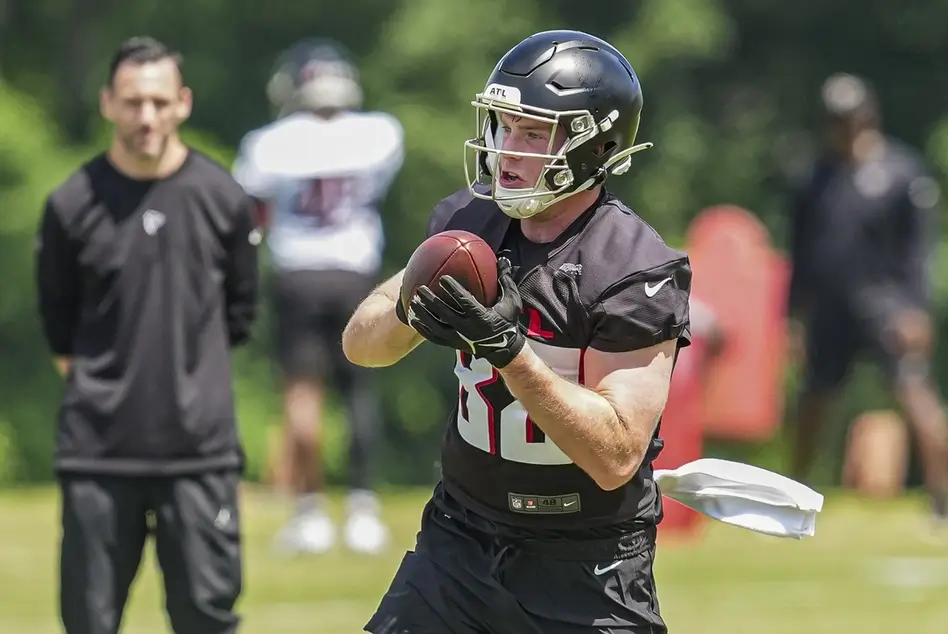The New York Jets and Robby Anderson have parted ways after four seasons. The Temple product reunites with Carolina Panthers coach Matt Rhule, his mentor in college. Was this the result the Jets wanted? Of course not. The Jets let their only real outside threat leave on a two-year, $20m deal. It’s a hole left in one of the worst offences in the NFL last season.
Anderson is best-known for his go routes and deep threat. However, he was not considered a legitimate no.1 receiver. He had 52 catches last season for 779 yards and five touchdowns, per ESPN. His route-running tree was limited, as teams feared little about his short-field game or ability to beat defenders with technique.
Given the Jets’ offensive line struggles, Quarterback Sam Darnold rarely had time to wait for plays to develop and Anderson to get deep. Jamison Crowder regularly took responsibility in the short passing game from the slot, gaining more catches (78), yards (833) and touchdowns (6) than Anderson last season. There were questions about Anderson’s effort when he wasn’t the primary receiver. His off-field issues are a red flag. Although he was never suspended, Anderson was arrested twice during his time with the Jets.
Free agency
Anderson had been looking for something in the region of $13-15m per year in a new contract, but his market never materialised, given the depth of talented receivers in the upcoming draft. Jets’ general manager Joe Douglas refused to pay above Anderson’s perceived value, allowing him to walk. Now, Douglas needs to reboot an ailing receiving corps.
At the beginning of free agency, the Jets’ biggest needs were on the offensive line, cornerback, edge rusher, and wide receiver. Douglas went after the biggest weakness, signing Connor McGovern, George Fant, and Greg Van Roten to start on the offensive line, while re-signing Guard Alex Lewis. Backup Center Josh Andrews also came over from the Indianapolis Colts. As poor offensive line play was at the heart of the Jets’ struggles, this was a welcome upgrade for Sam Darnold and Le’Veon Bell.
Douglas was also quick to snap up Cornerback Pierre Desir after his release from the Colts. Jets reporter Connor Hughes said Douglas contacted Desir within thirty minutes of his release, signing him to a one-year, $5m deal. He also retained the services of Brian Poole and Arthur Maulet, serviceable cornerbacks who performed admirably given the struggles of big free agent signing Trumaine Johnson, who has since been cut. There is also interest in top available Cornerbacks Prince Amukamara, Logan Ryan and Nickell Robey-Coleman, at the right price.
The edge rush and receiver positions are still needy. Jadeveon Clowney may be available, but Douglas is unwilling to overpay on anyone. Everson Griffen could be a useful addition to plug up the position, however several teams are interested in his services. Ate age 38, Cameron Wake is a short-term solution only. Edge is the position of need least likely to be filled. It could be a different story entirely at receiver.
Replacing Robby
The Jets moved quickly to replace Anderson’s speed, signing Breshad Perriman to a one-year, $6m deal that replenishes the dimension to the passing game lost by Anderson’s exit. Perriman was partially involved last season with the Tampa Bay Buccaneers, stepping in when Mike Evans and Chris Godwin went down injured. Despite starting only four games, he had 36 receptions, 645 yards, and six touchdowns. His last five games of the 2019 season contributed 25 receptions, 506 yards, and five touchdowns of his total. Perriman can be a real weapon for Darnold. Much like Anderson, his route tree leaves something to be desired, preferring to depend on his speed to beat defenders rather than agility or clean routes. Yet, at $6m, much cheaper than Anderson’s contract, Perriman will be a welcome replacement.
Still, the Jets need a no.1 playmaking receiver who will draw the attention of defences. The current receiving corps is weak, with Perriman and Crowder the only genuine starters. The Jets acquired former first-round pick Josh Doctson, but it’s unknown if he’ll ever develop to the level his college game projected. Quincy Enunwa is recovering from a serious neck injury. It’s unknown when he’ll be cleared for any football activities. Demaryius Thomas may not return. Their other receivers are Josh Bellamy, Braxton Berrios, Jehu Chesson, Keon Hatcher, Josh Malone, Jeff Smith, and Vyncint Smith. They combined for 26 receptions, 372 yards and zero touchdowns in 2019.
Addressing the Draft
Joe Douglas has several questions to consider before he makes his next move: Does he now consider the offensive line strong enough to compete as is? Does he believe that with a healthy Enunwa, the receiving corps has enough depth? How does he address the lack of edge rushers?
If Douglas is relatively happy with the offensive line as it currently stands, expect the Jets to be aggressive in drafting a receiver early. With the 11th overall pick, the Jets may find themselves with the pick of the receivers. The top prospects are Jerry Jeudy and CeeDee Lamb, so one of those would likely be wearing Gang Green next season. However, if Douglas isn’t fully pleased with his offensive line, he should address the tackle position in the draft. In this case, Tristan Wirfs, Jedrick Wills, Mekhi Becton, or Andrew Thomas will surely be selected.
What about a scenario where their targets are off the board? The New York Giants, Miami Dolphins, Jacksonville Jaguars, Arizona Cardinals and Cleveland Browns all need help at tackle. It’s not impossible to believe that the four tackles may be taken before the Jets have an opportunity. It’s expected that Joe Burrows, Chase Young, Jeff Okudah, Isaiah Simmons and likely another quarterback will be gone before the Jets choose. Lamb and/or Jeudy should be available, but what if the Jets trade down? They can take advantage of the mass of picks on the offensive line, as quarterback-needy teams will be desperate if Tua Tagovailoa or Justin Herbert are still on the board.
Filling needs
The Jets could move down a few spots and take Henry Ruggs or Justin Jefferson, explosive receivers seen as just slightly below Lamb and Jeudy’s level. They could address their need at edge, taking K’Lavon Chaisson or Yetur Gross-Matos. Perhaps they drop a few spots and draft Josh Jones, the next best tackle on the board. They could use the additional picks to take one of the many quality receivers in rounds two and three. The Jets own the 48th, 68th and 79th overall picks.
If they choose to address the offensive line early, they could then fill up the receiver or edge positions. Jaelon Raegor, Laviska Shenault Jr., Tee Higgins, and K.J. Hamler might be on the board at receiver for any of those three picks. At edge, Terrell Lewis, Julian Okwara, Josh Uche or Jonathan Greenard may be there. The Jets could conceivably fill needs at tackle, receiver, and edge with immediate starters in the first three rounds.
Best-case scenario, Mekhi Becton falls to 11th overall with his size (6’7”) and speed (5.1 second 40 yard dash). The Jets grab one of the better edge rushers in A.J. Espnsa (unlikely) or Terrell Lewis (more likely) at 48th. In round three, they take Tee Higgins or K.J. Hamler with the 68th pick. If no high-level receivers remain at the 79th pick, then focus on a cornerback with one of Damon Arnette, Troy Pride Jr., or Michael Ojemudia. Suddenly, the Jets roster looks more complete.
Losing Robby Anderson shines a spotlight on the need at receiver. Breshad Perriman and Jamison Crowder are solid options as a no.2 and slot receiver respectively. With a true no.1 receiver the Jets would have a potentially explosive offence. If they complete the offensive line rebuild and give Darnold that definitive weapon, the Jets may be a dangerous prospect next season.

